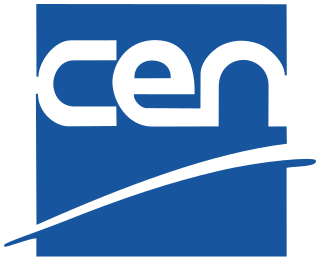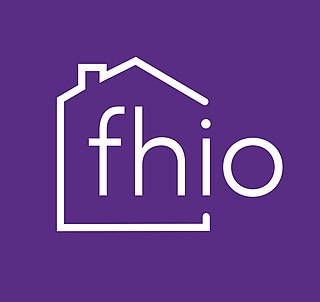Related Research Articles
Telephone slamming is an illegal telecommunications practice, in which a subscriber's telephone service is changed without their consent. Slamming became a more visible issue after the deregulation of the telecommunications industry in the mid-1980s, especially after several price wars between the major telecommunications companies. The term slamming was coined by Mick Ahearn, who was a consumer marketing manager at AT&T in September 1987. The inspiration for the term came from the ease at which a competitor could switch a customer's service away from AT&T by falsely notifying a telephone company that an AT&T customer had elected to switch to their service. This process gave AT&T's competitors a "slam dunk" method for the unauthorized switching of a customer's long-distance service. The term slamming became an industry standard term for this practice.

The European Committee for Standardization is a public standards organization whose mission is to foster the economy of the European Single Market and the wider European continent in global trading, the welfare of European citizens and the environment by providing an efficient infrastructure to interested parties for the development, maintenance and distribution of coherent sets of standards and specifications.

Citizens Advice is an independent organisation specialising in confidential information and advice to assist people with legal, debt, consumer, housing and other problems in the United Kingdom.
Consumer organizations are advocacy groups that seek to protect people from corporate abuse like unsafe products, predatory lending, false advertising, astroturfing and pollution.

The Chartered Trading Standards Institute (CTSI) is a professional association which represents and trains trading standards professionals working in local authorities, business and consumer sectors and in central government in the UK and overseas.
The Telephone Preference Service (TPS) is the United Kingdom's official do not call list. It allows businesses and individuals to opt out of unsolicited marketing calls.

The Unfair Commercial Practices Directive 2005/29/EC regulates unfair business practices in EU law, as part of European consumer law. It requires corresponding laws to be passed that incorporate it into each member state's legal system. It is intended to provide a level playing field in the single market, reducing trade barriers.
The Data & Marketing Association formerly, Direct Marketing Association (DMA) is a trade organization for marketers. In 2017, their web site stated, "Yes, 100 years ago we were the Direct Mail Marketing Association and then the Direct Marketing Association. Now we embrace …"
Consumer Affairs Victoria (CAV) is a government agency that protects and promotes the interests of consumers and is based in the Australian state of Victoria. It is responsible for reviewing and advising the Victorian Government on consumer legislation and industry codes; advising and educating consumers, tenants, traders and landlords on their rights, responsibilities and changes to the law; registering and licensing businesses and occupations; conciliating disputes between consumers and traders, tenants and landlords; and enforcing and ensuring compliance with consumer laws. It is a business unit of the Department of Justice and Community Safety.
The Retail Motor Industry Federation (RMI) represents the interests of motor industry operators in England, Wales, Northern Ireland and the Isle of Man providing sales and services to motorists and businesses. It does not represent businesses in Scotland, which are represented by the independent Scottish Motor Trade Association.
NHS Direct Wales is a 24-hour telephone and internet health advice service provided by NHS Wales to enable people to obtain advice when use of the national emergency telephone number does not seem to be appropriate but there is some degree of urgency; it also functions as a confidential advice service for some medical matters which a patient might be reluctant to discuss with their own General Practitioner (GP) and has subsidiary helplines for specific health matters such as human papillomavirus (HPV).
ILD Teleservices, is a clearing house for LEC billing and alternative payment options, such as e-checks, ACH and micro payments. ILD performs payment processing services for communications companies, digital content providers, and other online vendors in North America. Founded in 1996, the company is headquartered in Ponte Vedra, Florida. In recent years, the company has been the subject of many consumer complaints as well as legal action brought by at least two states and the Federal Trade Commission. In 2003, ILD settled with the Federal Trade Commission.
The New National Consumer Council, operating as Consumer Futures, was a non-departmental public body and statutory consumer organisation in England, Wales, Scotland, and, for postal services, Northern Ireland. It was established by the Consumers, Estate Agents and Redress Act 2007, and began operations in 2008 by the merging of Postwatch, Energywatch and the Welsh, Scottish and National Consumer Councils under the Consumer Focus brand.
Ombudsmen in Australia are independent agencies who assist when a dispute arises between individuals and industry bodies or government agencies. Government ombudsman services are free to the public, like many other ombudsman and dispute resolution services, and are a means of resolving disputes outside of the court systems. Australia has an ombudsman assigned for each state; as well as an ombudsman for the Commonwealth of Australia. As laws differ between states just one process, or policy, cannot be used across the Commonwealth. All government bodies are within the jurisdiction of the ombudsman.

In finance, an electronic trading platform also known as an online trading platform, is a computer software program that can be used to place orders for financial products over a network with a financial intermediary. Various financial products can be traded by the trading platform, over a communication network with a financial intermediary or directly between the participants or members of the trading platform. This includes products such as stocks, bonds, currencies, commodities, derivatives and others, with a financial intermediary such as brokers, market makers, Investment banks or stock exchanges. Such platforms allow electronic trading to be carried out by users from any location and are in contrast to traditional floor trading using open outcry and telephone-based trading. Sometimes the term trading platform is also used in reference to the trading software alone.

The Property Ombudsman (TPO) scheme is an ombudsman in the United Kingdom. It has been providing consumers and property agents with an alternative dispute resolution service since 1990.
The European Consumer Centres Network (ECC-Net) is an EU-wide network. There is a national contact point called European Consumer Centre (ECC) in all 27 EU Member States, as well as in Iceland and Norway. ECCs provide consumers with information about the opportunities and risks of the European Single Market and also regarding cross-border consumer topics, such as travel, various services, and the purchase of goods and services. The ECC-Net is staffed by legal experts who assist consumers free of charge to solve any dispute that may arise with enterprises based in another EU country, Norway, or Iceland. The ECCs are co-financed by the European Commission and national governments aiming to protect consumer rights and ensure that every EU citizen may take full advantage of the European Single Market. Depending on the formal structure some ECCs are hosted by non-governmental organizations (NGOs), governmental bodies, or independent organizations.

The Furniture & Home Improvement Ombudsman (FHIO), formerly The Furniture Ombudsman (TFO) is an independent not for profit organisation based in the United Kingdom. It specialises in alternative dispute resolution for customers of its members in the retail, furniture and home improvement industries. As a membership-based scheme, it also provides training and education services to its members which aim to raise standards, improve service and inspire consumer confidence.

The Consumer Protection Act, 1986 (COPRA) was an Act by the Parliament of India elected to protect the interests of consumers in India. It was replaced by the Consumer Protection Act, 2019. It was made for the establishment of consumer councils and other authorities for the settlement of consumer's grievances and matters connected with it. The act was passed in Assembly in October 1986 and came into force on December 24, 1986.
The Consumer Council is an independent statutory authority in Hong Kong, established in 1974 and formalised in April 1977 under the Consumer Council Ordinance. Its role is to enhance consumer welfare and empower consumers to protect themselves. Over the course of the past four decades the expansion in the council's duties and services on consumer protection, such as the publishing of the CHOICE Magazine in 1976, the recent launch of online price-watching tools, and conducting studies on different aspects of the consumer market, have coincided with the socio-economic development of Hong Kong. Apart from being a consumer advisor, it has assumed the role as a key stakeholder in making of consumer-related policies.
References
- Consumer Direct website
- Technical documentation
- Independent article
- Consumer Direct helpline to be run by Citizens Advice
- Public bodies review: consumer bodies [ permanent dead link ]
- Citizens Advice consumer service